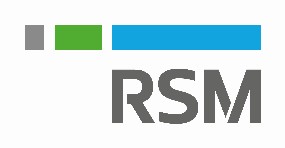 |
| Kara Lindsey Talent Acquisition Senior Associate Des Moines, IA |
As a recruiter, I get the chance to “sell” the idea of working at RSM US LLP on a daily basis and one of the top selling points is RSM’s flexibility, both informal flexibility and our formalized flexible work options.
What does flexibility look like in real life? I spoke with a few employees at RSM about what flexibility means to them:
“Flexibility to me means being able to serve clients (internal or external) from wherever I need to, and having access to the tools and support required to do so. In my position, I have the flexibility to work from home if need be, which is extremely important for the stage I’m in with having young kids. There is no shortage of connectivity and I’m able to maintain relationships and deliver the power of being understood.” - Jessica Thayer, RSM scheduling specialist
“It means not being “stuck” working 8 (or 9) to 5 but having the ability to come in later or stay later, or even come in early and leave early without getting in “trouble.” It means being able to work from home if you are able to or being able to just get up and leave if a family emergency occurs.” - Danielle Spoerry, tax processing specialist
“While I’m studying for the CPA exam, my job at the NASC gives me the chance to gain a lot of tax experience and open doors for my career. The flexible hours allow me to work hard while still having time to study or just wind down.” - Jordan Qatami, Tax Associate at RSM’s North America Service Center in Tempe, AZ
But how do you earn flexibility in the workplace? Is it okay to ask for flexibility? Will we be looked at negatively if we do? Here are a few tips to help employees discuss flexibility and ensure it works for them and their teams.
- Start by earning your flexibility. Show that you can be trusted and that people can believe in you — if you say you are going to do something, it is going to get done and done on time. What I have found is that people will work hard for you if you trust them and give them the flexibility they need to get things done.
- Yes. It’s OK to ask for flexibility. When approaching your manager to discuss a formal flexible work arrangement, be prepared with an in-depth plan of how a formal flexible arrangement will work. Identify reasons for requesting the arrangement and help establish how you will be accountable for your work.
- For informal flexibility, meaning flexing time as needed, be sure to discuss with your manager the team norms and preferred approach to letting your manager and the team know you’re taking advantage of flexibility – be it working remotely or flexing your hours.
- Maintain regular contact and visibility with colleagues
- Ensure all requests are put in writing.

